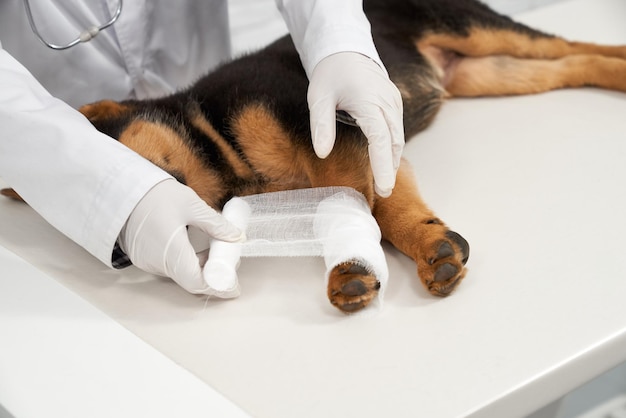Nutritional Guidance for Healthier Pets: What Every Owner Should Know


Nutritional Guidance for Healthier Pets: What Every Owner Should Know
When it comes to helping your pet live a long and vibrant life, few things are as important as nutrition. Whether you have an energetic dog, a curious cat, or a majestic horse, providing the right balance of nutrients can make all the difference in their health, happiness, and longevity. At Green Tree Animal Hospital, located at 4371 Old Harrodsburg Road, Suite 140, Lexington, KY 40513, our team of veterinarians is passionate about supporting pet wellness through customized nutritional advice and ongoing care. Many pet owners in Lexington and surrounding communities wonder how to choose the best diet for their animal companions, prevent common health issues, and ensure their pets maintain healthy weights.
In this comprehensive guide, we’ll explore practical pet nutrition strategies tailored for dogs, cats, and horses, along with actionable pet wellness tips to help your animals thrive. We’ll discuss signs of nutritional imbalances, share prevention strategies, and explain when to seek professional veterinary services in Lexington. If you’re searching for a vet near me who understands the importance of nutrition as part of total wellness, Green Tree Animal Hospital is here to guide you every step of the way. For routine check-ups that include nutritional counseling, consider scheduling a wellness examination with our veterinary professionals.
Recognizing Nutritional Issues in Your Pet
Proper pet nutrition is foundational, but how do you know if your pet’s diet is truly meeting their needs? Many pet owners are surprised to learn that even small nutritional imbalances can have significant effects on their animal’s well-being. Key symptoms of nutritional deficiencies or excesses include dull or thinning coats, persistent itching, changes in appetite, unexplained weight loss or weight gain, and gastrointestinal disturbances such as vomiting or diarrhea. In horses, warning signs may also involve poor hoof quality, lack of energy, or a decline in performance.
Other signs to watch for are dental problems, bad breath, and behavioral changes such as increased lethargy or irritability. Cats may show signs like excessive hairballs, flaky skin, or decreased grooming activity. For dogs, recurring ear infections or allergies can sometimes be linked to food sensitivities or inappropriate diets. Horses may exhibit muscle wasting or poor topline development if their nutritional intake is out of balance.
If you notice any of these changes, it’s important to take them seriously. While some symptoms may seem mild at first, they can indicate underlying issues that require attention from a veterinarian near me who understands the nuances of animal nutrition.
Understanding the Causes: Why Pet Nutrition Matters
To provide the best possible care, it helps to understand why nutrition has such a profound impact on your pet’s health. The causes of nutritional imbalances are often multifactorial. Many commercial pet foods are formulated for the “average” animal, but individual needs can vary greatly depending on species, breed, age, activity level, and existing medical conditions. Dogs and cats require specific balances of protein, fat, carbohydrates, vitamins, and minerals, while horses have unique digestive systems adapted to grazing and constant forage intake.
Factors contributing to poor nutrition include feeding low-quality or improperly balanced diets, offering excessive treats or table scraps, and not adjusting food quantities as your pet’s activity level changes. Additionally, pets with chronic health issues may have altered dietary requirements that standard store-bought foods cannot meet. Food allergies or sensitivities, which we frequently diagnose at Green Tree Animal Hospital, can also lead to skin problems, digestive upset, and chronic discomfort if not properly managed.
Seasonal changes in Lexington, such as hot summers or cold winters, can also affect your pet’s nutritional needs. For example, horses may require more calories in winter to maintain body condition, while pets spending more time outdoors in the summer might need adjustments to hydration and energy intake.
Professional Nutritional Management and Support
When it comes to managing your pet’s nutrition, professional guidance can be invaluable. At Green Tree Animal Hospital, our veterinary team takes a comprehensive approach that considers your pet’s overall health, lifestyle, and any underlying medical conditions. Treatment approaches involve conducting a thorough history and physical examination, evaluating current diet, and performing diagnostic tests if needed to assess for deficiencies, allergies, or metabolic issues.
For pets struggling with weight, our veterinarians can recommend tailored weight management plans, including specialized diets and portion control strategies. For animals with chronic health problems such as diabetes, kidney disease, or allergies, dietary modifications are often a key component of successful management. Horses may benefit from custom feeding programs that address issues like laminitis risk, metabolic syndrome, or performance nutrition.
In some cases, allergy testing may be recommended to identify food or environmental sensitivities affecting your pet’s health. Our allergy testing services can help pinpoint contributing factors and guide dietary adjustments. For pets with dental concerns, integrating optimal nutrition with regular dentistry services supports both oral and systemic health.
We also understand that every pet is unique. That’s why we encourage pet owners to schedule regular wellness examinations, where nutritional evaluations can be part of your pet’s ongoing care plan. Through these visits, we can make proactive adjustments as your pet ages or as their health needs change, supporting long-term pet wellness in Lexington.
Preventive Nutrition and Home Care Tips
Preventing nutritional problems starts with informed, consistent care at home. Steps to support good nutrition include feeding a high-quality commercial or veterinarian-recommended diet that matches your pet’s species, age, and activity level. Always measure food portions carefully, as overfeeding is a common cause of obesity in both dogs and cats. For horses, providing free-choice access to clean hay and fresh water, with supplemental concentrates only as needed, helps maintain digestive health.
Transition foods gradually to avoid gastrointestinal upset, and avoid giving pets table scraps or foods that can be harmful, such as onions, chocolate, or grapes for dogs and cats, and lawn clippings or moldy hay for horses. Regularly washing food and water bowls, storing pet food properly, and monitoring expiration dates also support food safety.
Physical activity plays a key role in maintaining ideal body weight and digestive health. Daily walks, interactive play, and mental stimulation can help prevent boredom-related eating and support overall wellness. Monitoring your pet’s body condition and keeping track of changes in weight, appetite, or coat quality are important habits for early detection of nutritional issues.
Working closely with your veterinary team ensures that your pet’s evolving needs are met. For ongoing support, consider enrolling in one of our Wellness Plans, which can help you stay on top of preventive care, routine check-ups, and nutritional guidance throughout your pet’s life.
When to Seek Veterinary Care for Nutrition Concerns
Knowing when to seek professional help is essential for your pet’s wellbeing. If you observe persistent vomiting or diarrhea, sudden weight loss, refusal to eat, or signs of pain or discomfort after meals, these are strong indicators that your pet requires a veterinary assessment. Changes in behavior, such as increased lethargy or withdrawal, can also signal underlying nutritional or health problems.
For horses, colic symptoms, difficulty chewing, or chronic poor condition should prompt an immediate call to your veterinarian. Recurring skin or coat issues, chronic ear infections, or suspected food allergies in dogs and cats warrant professional evaluation as well. If you have questions about whether your pet’s current diet is appropriate, or if you are considering a dietary change due to health concerns, a comprehensive evaluation with a veterinarian near me can provide peace of mind and expert recommendations.
Green Tree Animal Hospital’s veterinary professionals are committed to providing thorough nutritional assessments for pets in Lexington and surrounding communities. We encourage all pet owners to include nutrition as part of their regular veterinary care routine, as even small adjustments can yield significant improvements in quality of life.
Conclusion: Prioritizing Pet Nutrition for Lifelong Wellness
Optimal pet nutrition is one of the most effective ways to support your animal companion’s health, prevent disease, and promote a vibrant, happy life. By staying attentive to signs of nutritional imbalances, understanding the unique needs of your pet, and working closely with a trusted veterinary team, you can make informed choices that benefit your pet for years to come.
At Green Tree Animal Hospital, our veterinarians are dedicated to helping you navigate the world of pet nutrition in Lexington. We invite you to schedule an appointment for a wellness examination or to discuss your pet’s individual dietary needs. Whether you are looking for the best veterinarian near me or seeking guidance on pet wellness tips, our team is here to support you with compassionate, expert care.
For more information on preventive programs or to explore our Wellness Plans, please call (859) 223-2221 or visit our clinic at 4371 Old Harrodsburg Road, Suite 140, Lexington, KY 40513. Your pet’s wellbeing is our top priority, and together, we can ensure they receive the best pet nutrition in Lexington.
The information provided in this blog is for educational purposes only and should not be used as a substitute for professional veterinary advice. Always consult your veterinarian for personalized care recommendations. For additional resources on pet nutrition, visit the American Animal Hospital Association’s nutrition guidelines or WSAVA Global Nutrition Committee.





_corporate_logo-1920w.webp)
















